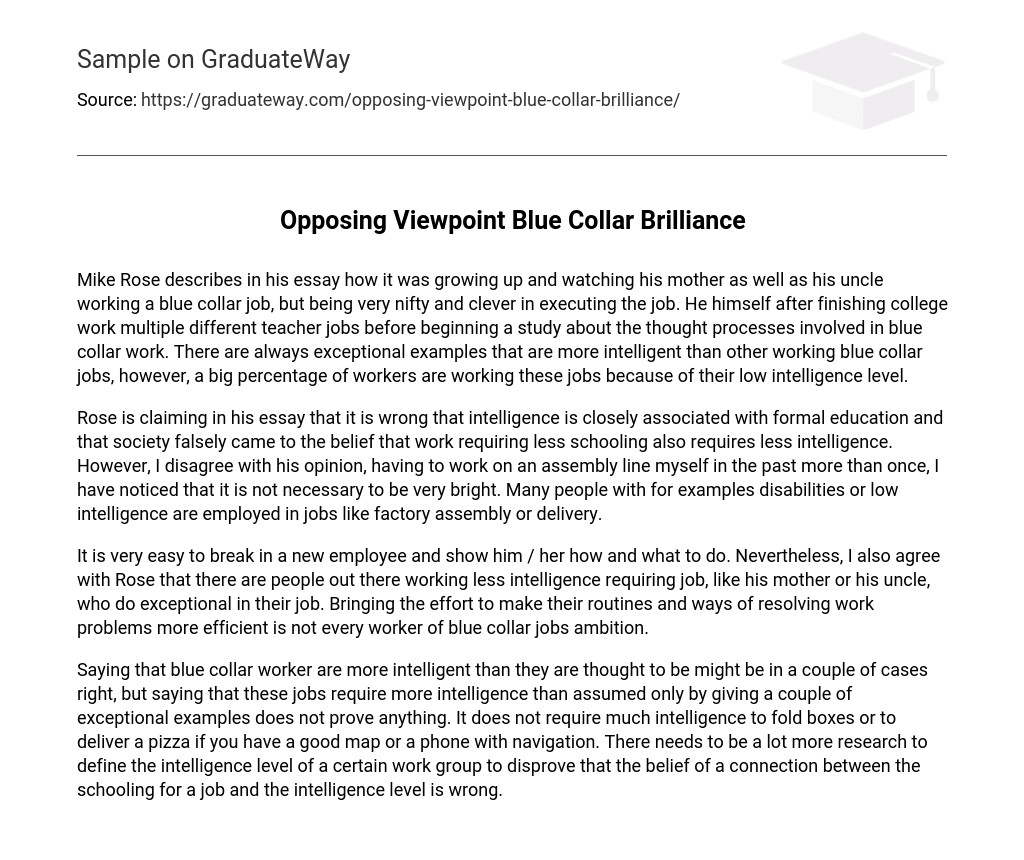In his essay, Mike Rose recounts his upbringing and observations of his mother and uncle performing blue collar work with great skill and ingenuity. He also shares personal experiences of working as a teacher after college, before embarking on a study exploring the cognitive aspects of blue collar work. Although there are undoubtedly exceptional individuals who exhibit higher levels of intelligence within the realm of blue collar occupations, a significant portion of the workforce in these roles is comprised of individuals with lower intellectual capabilities.
In his essay, Rose argues against the common belief that intelligence and formal education are closely connected. He believes that society wrongly assumes that less schooling also requires less intelligence. However, I disagree with Rose’s viewpoint based on my personal experience of working on an assembly line multiple times. I have observed that high intelligence is not a necessity in such jobs, as individuals with disabilities or low intelligence are often employed in roles like factory assembly or delivery.
Breaking in a new employee and teaching them what to do is a simple task. However, I agree with Rose that certain individuals, such as his mother or uncle, excel at less intellectually demanding jobs. Not every worker in blue-collar jobs aspires to improve the efficiency of their routines and problem-solving methods.
Saying that blue collar workers are more intelligent than commonly believed may be true in some cases. However, using a few exceptional examples to argue that these jobs require more intelligence than assumed does not provide sufficient evidence. It does not take much intelligence to perform tasks like folding boxes or delivering pizza with the assistance of a map or navigation on a phone. Extensive research is needed to accurately determine the intelligence levels within specific work groups in order to challenge the belief that there is a correlation between job-related schooling and intelligence.





